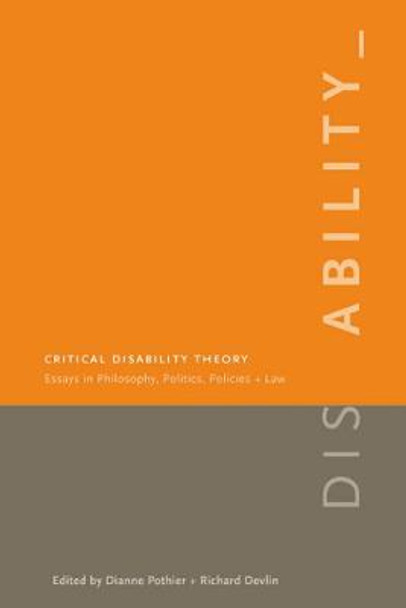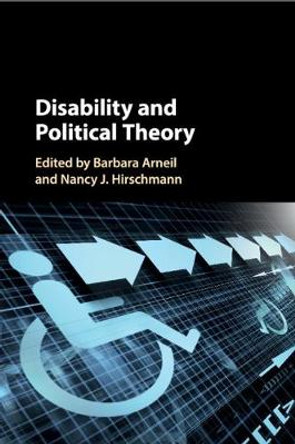Description
People with disabilities in Canada inhabit a system of deep structural, economic, social, political, legal, and cultural inequality - a regime of dis-citizenship. Despite the widespread belief that Canada is a country of liberty, equality, and inclusiveness, many persons with disabilities experience social exclusion and marginalization. They are socially constructed as second-class citizens.
Conventional understandings of disability are dependent on assumptions that characterize disability as misfortune and by implication privilege the "normal" over the "abnormal." Consequently, it is presumed that societal organization based upon able-bodied and -minded norms is inevitable and that the best we can do is show sympathy or pity. The essays Critical Disability Theory contend instead that achieving equality for the disabled is not fundamentally a question of medicine or health, nor is it an issue of sensitivity or compassion. Rather, it is a question of politics, and of power and powerlessness.
This book argues that we need new ways to think about the nature of disability, a new understanding of participatory citizenship that encompasses the disabled, new policies to respond to their needs, and a new vision of their entitlements. Twenty-four scholars from a variety of disciplines come together here to identify the problems with traditional approaches to disability and to provide new directions. The essays range from focused empirical and experiential studies of different disabilities, to policy analyses, legal interrogations, and philosophical reconsiderations. The result will be of interest to policy makers, professionals, academics, non-governmental organizations, and grassroots activists.
The essays in this collection demonstrate how social values, institutional priorities, and political will have identified current concepts of "disability"; at the same time, these authors challenge us to re-think our assumptions and our categories to forge a new vision of equality, one that takes account of "who and what gets valued, and who and what gets marginalized." This collection is important for all Canadians who want to understand the lived experiences of persons with disabilities, who want to make a difference in their lives - by transforming their "dis-citizenship" into valuable contributions to our collective life as citizens. -- Mary Jane Mossman, Osgoode Hall Law School, York University
About the Author
Dianne Pothier and Richard Devlin are professors in the Faculty of Law at Dalhousie University.
Book Information
ISBN 9780774812047
Author Dianne Pothier
Format Paperback
Page Count 352
Imprint University of British Columbia Press
Publisher University of British Columbia Press
Weight(grams) 580g








